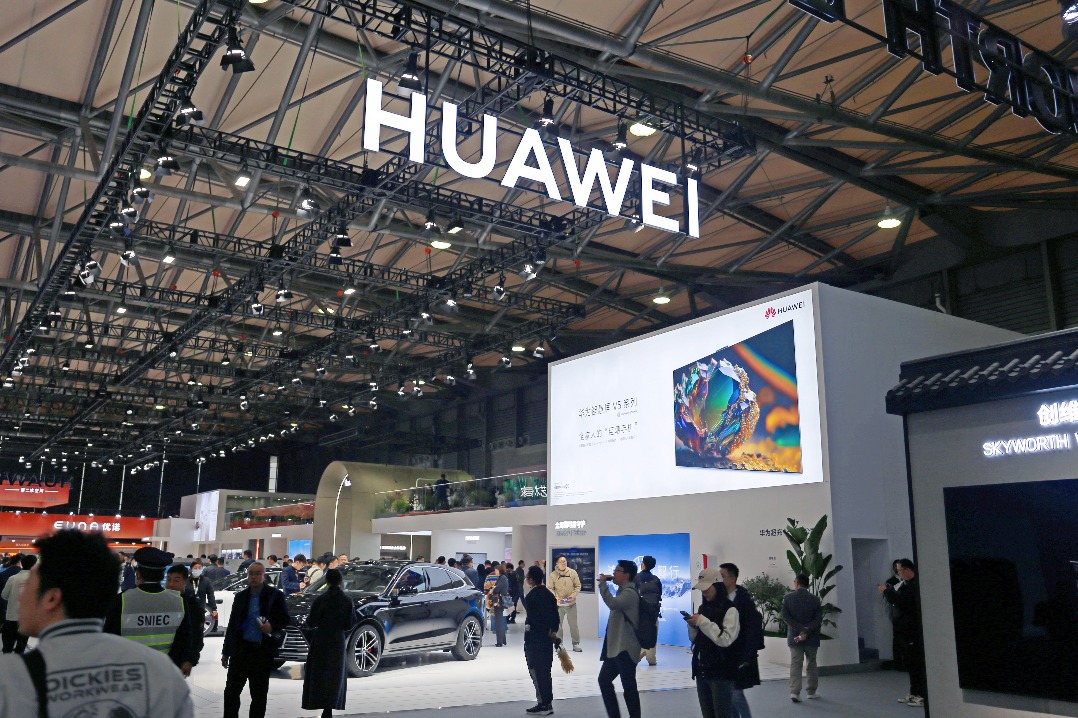Huawei Technologies Co said on Friday that more than 900 million devices in China, including its own-branded products as well as devices from third-party companies, now run on its self-developed operating system HarmonyOS.
The announcement came after HarmonyOS surpassed Apple’s iOS to become the second bestselling mobile operating system in China in the first quarter of 2024, according to the market research company Counterpoint.
Yu Chengdong, chairman of Huawei’s consumer business group, which includes smartphones, PCs and other internet of things devices, said at the opening of a three-day developer conference in Dongguan, Guangdong province, that Harmony has made major breakthroughs.
“You can say (that) in (the last) 10 years, we’ve achieved what it took our European and US counterparts more than 30 years to do, in terms of building the core technology of an independent operating system,” Yu said.
Yu further said the HarmonyOS NEXT, a fully self-developed version of the operating system, started testing among software developers from Friday.
Huawei said its commercial release is planned for the fourth quarter of this year.
Yu also highlighted the rapid development and robust vitality of the Harmony ecosystem, noting that native HarmonyOS applications are entering a critical acceleration phase.
“As of now, the top 5,000 mobile applications have joined the Harmony ecosystem, with over 1,500 applications already available online for downloads. Development of native HarmonyOS applications across various sectors is underway, continuously injecting new energy into the ecosystem,” Yu said.
The Harmony ecosystem, he said, has attracted more than 2.54 million software developers. Evolving through four generations, Harmony-OS continues to deliver innovative experiences to billions of consumers.
HarmonyOS was first unveiled as an Android alternative in August 2019, three months after the US government added Huawei to its Entity List, restricting the Chinese company’s access to crucial US technologies.
Since then, Huawei has been working hard to push for wider adoption of HarmonyOS. HarmonyOS held a 17 percent market share in the Chinese market as more and more local consumers bought Huawei smartphones, closely followed by iOS with a 16 percent market share, data from Counterpoint showed.
Friday’s launch marks a milestone in Huawei’s advancements in nurturing a robust software ecosystem in China, experts said.
Xiang Ligang, director-general of the Information Consumption Alliance, a telecom industry association, said the HarmonyOS NEXT is of great significance to China’s operating system industry, which has long been dominated by foreign companies.
“It was through arduous efforts that Huawei managed to revive its consumer-oriented business, which was once crippled by the US government’s restrictions. Huawei’s progress in developing in-house operating system and its comeback to the 5G smartphone industry coincide with a period when AI smartphones are expected to trigger a new round of growth,” Xiang said.
As applications of AI mark all corners of the device market, smartphones are expected to drive the AI revolution into every home, according to a report by global market consultancy International Data Corp.
IDC’s preliminary forecast suggests 170 million next-generation AI smartphones will be shipped in 2024, representing almost 15 percent of total smartphone shipments and a sizable jump from the roughly 51 million AI smartphones shipped in 2023.
Dai Wei, deputy secretary-general of the Internet Society of China, called on Chinese internet enterprises and every link in the industry chain to embrace and support the HarmonyOS ecosystem.
Zhou Hongyi, founder and chairman of Chinese cybersecurity company 360 Security Group, said multiple high-quality applications under the company have joined the HarmonyOS ecosystem, promising users a smoother, more intelligent and secure experience.

